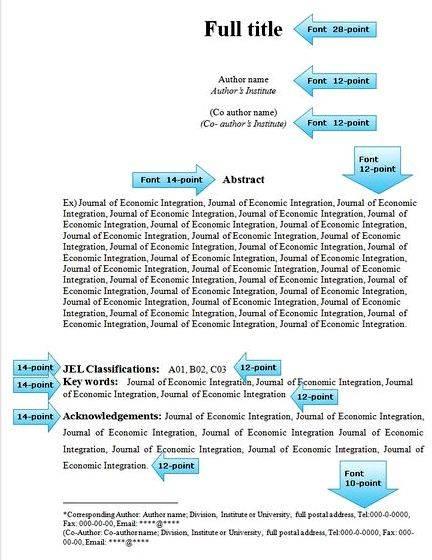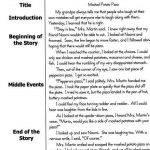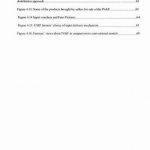When writing a review of an article published in a professional journal or anthology, focus on a topic or issue that draws your attention. Recognize that academics in most disciplines write within the context of their disciplines and include theoretical concerns and/or jargon specific to a discipline. Recognize that most authors assume that the reader has some background knowledge, which you might not have. Still, your job is to understand the logic, structure, and essence of the material in the article.
Some articles include a summary or abstract at the beginning of the article. Most articles follow a similar structure: (1) an introduction that sets the scene and a brief review of the relevant literature; (2) thesis statement or main focus of the article–i.e. what it is trying to prove; (3) the argument and supporting information and evidence; and (4) conclusions. Usually, articles have subheadings which permit skimming. A good trick is to read the first couple of paragraphs, then skip to the conclusions to get a feel for the author’s argument. Then go back and read in detail, noting words and issues you don’t understand and noting and the main points and supporting infomation.
Feel free to quote selectively from the article, especially if the author has a particularly pithy turn of phrase.
Your critical review should include (in paragraph, essay form but not necessarily in this order):
- A title that reflects the thrust of your review. For example, the article title is The Political Ecology of Deforestation in Chile. Your title might be They’re Only Trees: Cutting Down Old Growth Forests in Southern Chile.
- A full bibliographic reference for the work, in proper style, just below your title.
- Set the scene. What does the reader need to know to understand the main points of the article?
- The author’s thesis. Many writers do not state a clear thesis (because they are not as well trained in writing as you are), therefore you may have to figure it out yourself and state it in your own words. Sometimes, there may be three or four main points, not just one.
- What is the author’s argument and what information/evidence and sources does he/she use to support that argument?
- What are the author’s general conclusions?
- Your critique: A critique is not whether you liked the article or not. Rather, you should assess whether the the main point(s) is really significant? Does the author’s argument support the main point(s)? Is the evidence convincing? Are there wider ramifications to the conclusions? Can you apply this information to subjects with which you are familiar? Does the author employ a particular paradigm (such as postmodernism) or a particular theory (such as ecological materialism)? What don’t you understand, and is this because you lack certain assumed knowledge or vocabulary or because the writer is unclear?
- This list should not be considered all-inclusive nor restrictive. Journal articles vary greatly in subject, style, and methodology, so your review needs to reflect the material you are dealing with.
Sample first page:
Jane Smith
Readings in Latin American History
Article Review, Feb. 12, 2001
The voices calling for an end to development

are becoming more numerous and audible.
Arturo Escobar (1991: 679)
Development as Discourse: Is Development Destroying the Third World?
Escobar, Arturo. 1991 Anthropology and the Development Encounter: The Making and Marketing of Development Anthropology. American Ethnologist 18 (4): 658-682.
Few modern ideas in economics or international studies have engendered as much controversy as that of development. There are myriad ways in which development has been conceived — from early modernization theory to basic needs approaches to contemporary neoliberalism. Arturo Escobar, an anthropologist at the University of Massachusetts in Amherst, is not satisfied merely to take potshots at one or another of these formulations nor to offer an alternative model; rather it is the very concept — or in his term, discourse — of development that needs to be attacked. Drawing his inspiration from French philosopher Michael Foucault, Escobar argues that development policies are mechanisms for spreading Western hegemony. Development has relied exclusively on one knowledge system, namely, the modern Western one. The dominance of this knowledge system has dictated the marginalization and disqualification of non-Western knowledge systems (p. 673).
Typically, development has been conceived as a state-level phenomena, based on policies instituted at the level of the state. However, development anthropology, which is often equated with applied anthropology, usually focuses on the community level. According to Escobar, whatever anthropologists’ good intentions might be, they cannot help but impose the discourse of the West, with its capitalist and technological solutions. Even conceptionalizing the Third World in terms of problems and issues to be solved by external authorities imposes upon indigenous cultures
Your name, course, assignment and date go in the upper left.
Epigraph, before title, gives a quote that sums up the author’s thesis. Epigraphs can be useful in other types of papers also, and sometimes can provide key words of the title.
Your title sums up your position on the article.
The full reference for the article is placed in proper format after your title.
The body of your paper should be in 12-point type and double spaced (not as here). Courier is used here but Times-Roman type is also acceptable. (My PageMill program was erasing tabs when uploaded, which is why I inserted [tab] to represent normal paragraph indentation.)
Note that the first paragraph sets the scene–in this case, places the article in the context of controversies over development theory.




 Article writing for backlinks software
Article writing for backlinks software Writing news report osslt articles
Writing news report osslt articles Article writing for class 9th model
Article writing for class 9th model Article 89 de la constitution dissertation proposal
Article 89 de la constitution dissertation proposal Investment advice articles on writing
Investment advice articles on writing






